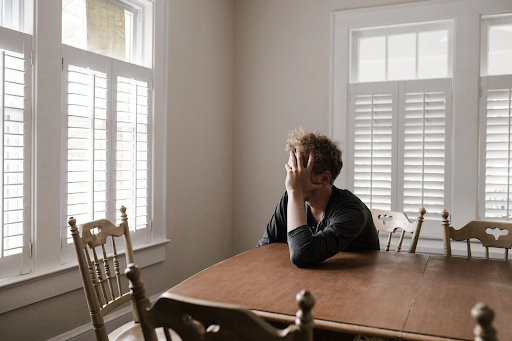If you’re wondering what is Catholic guilt, this guide should help you. It features 24 insights into guilt as it relates to this religion.
In my role as a life coach, I am always helping clients understand, handle and overcome negative emotions such as guilt. That’s why I’m excited to share this guide with you.
So, let’s dive in.
What Is Catholic Guilt?
Let’s begin by giving ourselves a better understanding of what Catholic guilt is.
1. Catholic Guilt Is When One Feels Guilty About Disobeying The Precepts Of The Catholic Church
The church issues various commandments to its followers. It teaches people that going against a commandment is a sin, which will see them cast from the church in the eyes of God, meaning they’re destined to burn in hell unless they confess their sins to a priest.
To casual followers at least, these commandments are incredibly strict. The truth is: many Catholics are sinning on a regular basis.
Even after confessing their sins to a priest, many practicing Catholics experience crushing guilt for their behavior.

2. Catholics Adopt A Black Or White View Of Morality
An act is either good or sinful. There is no gray area between right and wrong. There is no room for nuance in this faith.
This oversimplification of the rules absolutely contributes to the constant guilt felt by Catholics, who will inevitably commit sins, even if their intentions are in the right place.
3. What Is Irish Guilt?
Catholicism is extremely popular in Ireland. So much so that Catholic guilt is sometimes called Irish guilt.
4. Irish Catholic Guilt
Another term that is commonly used to descri`be this same feeling. Of course, if you were a Mexican Catholic or from any other country, it’s unlikely you’ll use this term
5. Catholic Guilt Syndrome
This is another term you might hear. It is commonly abbreviated to CGS. If someone is so bogged down by constant Catholic guilt that their mental health and daily actions are affected, you might say that they suffer from this.
Catholic Guilt Psychology
In this section, we’ll dive deeper into the psychology of this form of guilt.
6. What Are The 5 Catholic Beliefs?
The main five precepts are:
- to attend Mass on Sundays and the Holy Days of Obligation;
- to make confessions at least once a year;
- to receive Holy Communion at Easter;
- to keep holy the Feasts of Obligation;
- to observe the days of fasting and abstinence.
A sixth precept – to contribute to the support of the church – is often added. Catholics recognise the 10 commandments of Jesus Christ. The precepts surrounding marriage (which we’ll explore shortly) are also key.
Then, there are other lesser-known precepts such as not eating meat on Good Friday and always putting others before yourself. Those who are unfamiliar with the faith might feel like it’s hard enough to remember all the rules, let alone follow them in their own lives.
7. What Are The Symptoms Of Catholic Guilt
A heavy chest. Constantly re-running the sinful incident in your head. Constant feelings of shame and embarrassment. The symptoms are no different to any other type of guilt.
8. Even Casual Catholics Feel Guilt
When one’s family has been instilling certain values into them since childhood, these tend to stick in our subconscious.
If you went to Catholic school and had Catholic parents, you spent your whole childhood having these commandments forced down your throat.
That’s why those born into a Catholic family will find it hard to shake the guilt, regardless of whether they want to get involved with Cathlolicism as adults. They may still experience guilty feelings, regardless of their religious practice.
9. Confessing Doesn’t Prevent One From Feeling Guilt
Confessing might get one back into the good books of the church, but it’s not a free pass to guilt-free sin. Many Catholics report feeling the guilt, even after confessing.
10. Thinking About Sinning Can Be Enough To Feel Guilty
Catholics will often make confessions of sinful thoughts, and can feel guilty about doing so. This should give you a clearer idea about how all-encompassing this guilt can be.
11. There Are Two Types Of Sin: Mortal & Venial
A venial sin weakens the soul with sickness. If you commit a mortal sin, you are believed to be forfeiting your spot in heaven and opting for an eternal afterlife in Hell instead. Something to worry about, then.
There are three conditions necessary for a mortal sin to be committed.
- Grave matter. The act itself is intrinsically evil and immoral. Murder, rape and adultery are three examples.
- Full knowledge. The sinner is fully aware that the act is evil and immoral.
- Deliberate consent. The sinner fully consents to the act, rather than being forced to do the wrong thing against their will.
If you meet just one or two of these conditions, it’s a venial sin. All three and you’re burning in hell forever.
12. Is Leaving The Catholic Church A Mortal Sin?
When you’re baptised, you’re considered to be a member of the church for a life. If you leave the church, you’re considered to have fulfilled all three criteria for a mortal sin.
13. Severe Catholic Guilt Is Called Scruplosity
Those suffering from scruplosity often developed OCD-like symptoms in their efforts to avoid sinning. The term can be used to describe severe guilt from going against any religious beliefs.
14. Protestant vs Catholic Guilt
Followers of any religion can suffer from scruplosity. The difference in Protestant vs Catholic guilt would simply be the laws they were breaking. All other symptoms would be the same.
Catholic Guilt And Relationships
The main cause of Catholic guilt in romantic relationships surrounds the church’s beliefs around sexuality and marriage.
15. What Are The Catholic Rules About Sex And Marriage?
The church forbids premarital and extramarital sex. The use of contraception is forbidden as is viewing sexual material.
16. How Could Catholic Guilt Affect Relationships?
If one got into a romantic relationship with a devout Catholic, they’d have to accept that premarital sex is out of the question. Biologically, it’s incredibly likely that all Catholic men and women will experience urges to break this rule, which in itself could cause a great deal of guilt.
Those raised in Catholic households may have a lot of fear, anxiety and guilt about sex, even if they choose to ignore the rules – and it would be up to the partner to help them through that.
17. Does Catholicism Accept Homosexuality?
The church considers homosexuality to be a sin. This includes all thoughts of homosexual acts, as well engaging in the acts themselves. Gay marriage is also considered a sin.
18. How Common Is Catholic Guilt About Sexuality?
In a 2013 YouGov poll, Catholics were asked about their guilt surrounding premarital and extramarital sex, as well as the use of adult movies and contraception. Just 14% said they would feel guilty about most or all of these. That’s compared to 16% of all religious people and 3% of non-religious people.
Catholic Guilt And Depression

Let’s explore some key insights surrounding catholic guilt and depression.
19. Emotional Repression Is A Big Cause Of Depression Among Catholics
Even in the strictest Catholic families, everyone is likely to be experiencing sinful thoughts. Often, the problem is: they feel too ashamed to talk about them. This emotional repression can be enough to cause depression.
20. Constant Guilt Can Be Enough To Cause Depression Too
Perhaps an obvious point, but the constant fear of sinning and the guilt of having sinned isn’t great for your mental health either.
There’s healthy guilt, but it’s often suggested that devout Catholics are feeling guilty beyond this healthy level.
Overcoming Catholic Guilt
It’s not easy to overcome this form of guilt. In this final section of the article, we’ll explore why that is and what you can do to get over these feelings.
21. It’s Not Easy To Overcome Ingrained Values
It’s extremely difficult to overcome family values and habits ingrained in you since childhood. Indeed, it will require purposeful action to rid yourself of these harmful emotions.
Many of those looking to overcome these forms of guilt will have to go against the wishes of their family (as well as God’s word) to do so, making it even more difficult.
22. Evaluate Your Behavior From Outside The Catholic Gaze
When you do so, you’ll remember that humans are destined to make mistakes. We are steering blind in this life. We don’t have full control over our emotions and biological urges at every given moment. We can’t always see the right path ahead of us. So, we are destined to slip up from time to time.
In some cases, we can only give our best to make a reasonable guess. Provided we did this, we deserve unlimited compassion and self-forgiveness for our errors.
Yes, the Catholics have the whole confession thing if they want to be forgiven in God’s eyes. But, evaluating your behavior from outside the black and white view of the church should help you to stop feeling so guilty, regardless of whether you confess to a priest or not.
23. What Does The Term ‘Recovering Catholic’ Mean?
This is the phrase used to describe an individual who left the church due to the negative influence it had on their life. They consider Catholicism harmful enough to be ‘recovered’ from.
While it’s not my place to suggest anyone leaves their religion behind, it might be worth reading more into the stories of recovering Catholics if you’re struggling with the impact that Catholic guilt is having on your life.
24. Does Catholic Guilt Serve Anyone?
Healthy guilt can help to give us a moral compass. It can prevent us from doing a truly bad thing and makes the world a better place. But, on the other hand, what about guilt that gives obsessive compulsive disorder about our daily behavior? That’s certainly not normal.
Again, it’s not my place to say. But this might be a pretty good question to ask yourself when considering your next steps.
Any More Questions?
Thanks for reading my article. It was a pleasure to write.
Catholic guilt can be the butt of a joke in some circles, but can cause serious anxiety in others. I hope this guide can help you deal with whatever pain you’re dealing with around this topic.
If you’d like to point something out or ask a question, please do leave a comment below.
I’m excited to talk with readers from across the world about this subject.
Related Posts
